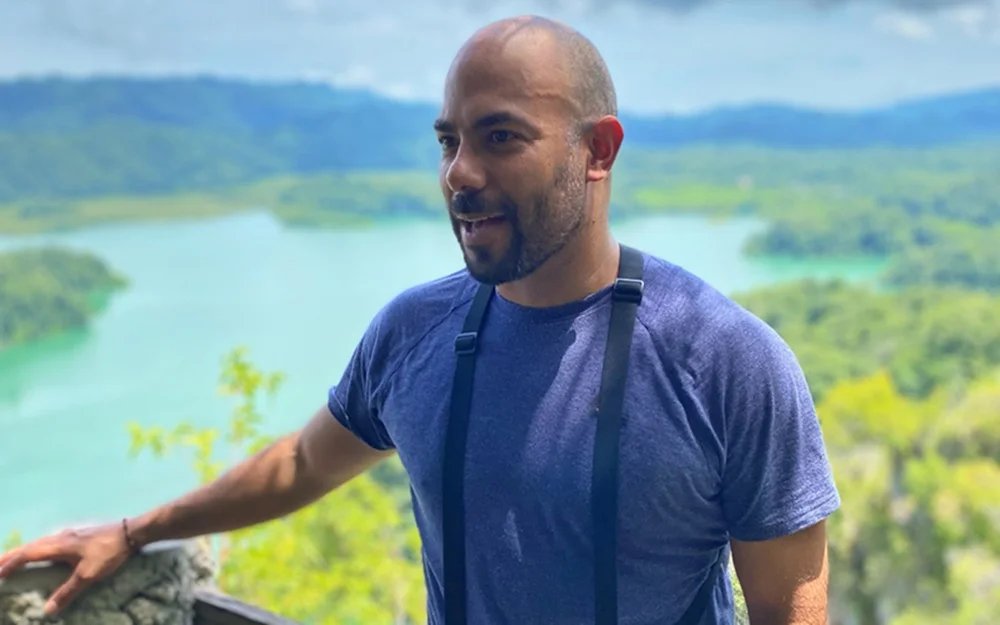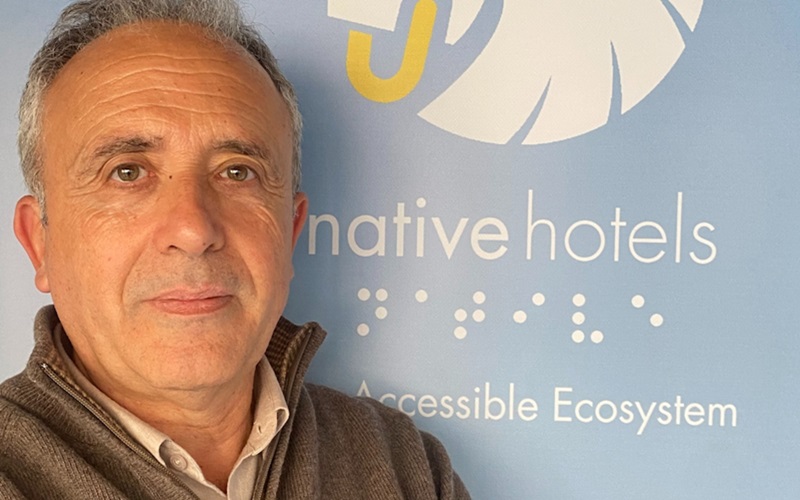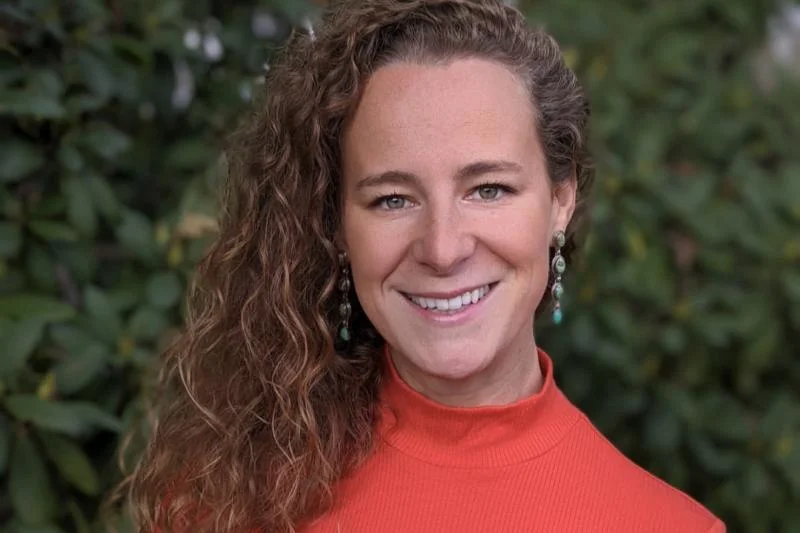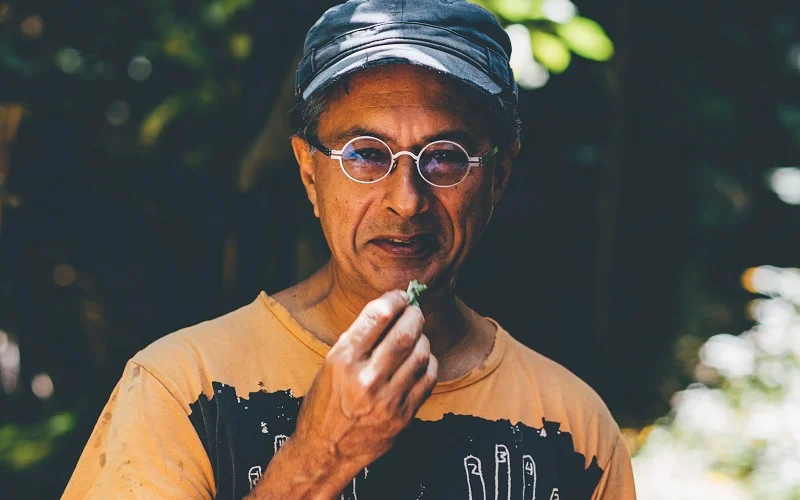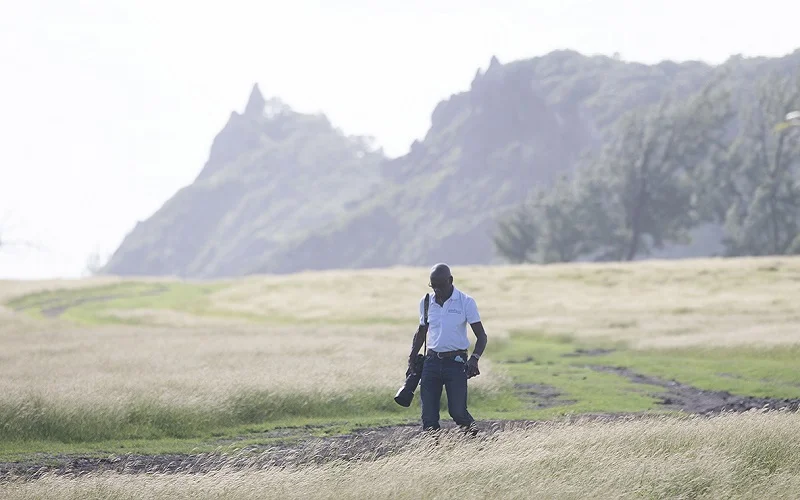
Online travel platforms are often critiqued for their lack of participation in sustainability initiatives. But it’s not all doom and gloom. In this interview, Danielle D’Silva – Booking.com‘s Internal Sustainability Lead – shares what motivated the company to reduce its energy consumption and to offset its carbon emissions.
Danielle further illustrates how Booking.com supports the travel industry by working with partners to educate and improve their own energy and waste efficiency, as well as funding sustainable travel projects, conservation initiatives, and volunteering programs.
Danielle, what motivates you to work towards sustainability at Booking.com?
What I love about working on sustainability at one of the world’s leading travel companies is that the industry is at an early stage in its sustainability journey – much less advanced than, for instance, food, agriculture and fashion. While it can be daunting to feel that we have a long way to go, at the same time it feels like an opportunity to create something special, collaborative, and forward-looking.
Travel intersects the dimensions of sustainability in a way that I don’t think other industries do. It’s always critical to consider economic, social and environmental sustainability, but in travel, they depend on each other. The travel industry relies on the protection of our environment, preservation of culture and the economic benefits it brings to the local population. Otherwise, the industry fails to provide its true value to customers and the world.
And like the travel industry as a whole, Booking.com is also still at an early stage on its sustainability journey. In the 3.5 years, I’ve been at the company, I’ve seen a tremendous evolution in the way we approach sustainability – where we previously viewed sustainability as the foundation of our CSR strategy, now we’re really focused on embedding sustainability into the core of our business and product. That’s been an incredible journey to be a part of.
The scale at which Booking.com’s efforts on sustainability can impact the planet and communities makes it that much more exciting. Addressing our operational footprint immediately creates a large impact, and of course, working together with our partners and helping to influence our customers to make more sustainable choices takes that to a whole new level.
What is your role as the Sustainability Lead – Internal Sustainability at Booking.com and what has your journey been at the company?
I started at Booking.com supporting our accelerator programs for startups in sustainable travel, but nearly two years ago, the scope of our team began to shift and so did my role. As a team and company, we took the first big step in truly embedding sustainability in the core of what we do – something we had long aspired for. We put tremendous focus on what we can do to make sustainable travel easier for our partners and customers, but we also realised that we could be a much better example to our peers by focusing deeply on sustainability in our day to day operations.
The main focus of our operational sustainability from an environmental perspective is our offices, data centres, and business travel. I work with our colleagues who look after our offices and data centres around the world to develop our ambitions and targets, and strategies to reach them, as well as support throughout the implementation of various new initiatives. In addition to that, I have spent a significant part of my time in this role working to improve the quality of our environmental data collection so that we are able to not only set relevant reduction or efficiency targets but track our progress throughout the year.
In addition to our plans to reduce the impact of our operations, we felt the need for an immediate answer to the entirety of our carbon footprint. My team and I had the pleasure of developing the company’s carbon offset strategy and 2020 was the first year that we achieved carbon neutrality in our operations. We will continue to be carbon neutral in 2021 and beyond.
We also recognise that sustainability in our operations encompasses more than our environmental footprint. Therefore, I also work with colleagues to improve or develop policies that minimise the potential unwanted side effects that travel can bring to both communities and individuals alike.
What initiatives have been adopted to minimise the company’s environmental impact?
As we began 2020, we had plans to remove all single-use plastics from our 200+ offices, focusing on finding reusable alternatives rather than swapping to a different type of single-use product. We also were to introduce better recycling programs in these offices and in a few select offices where our energy consumption and emissions were high, we would invest in either new technologies or systems that could help bring that efficiency up. Additionally, we planned to focus on our business travel footprint and the optimisation of our data centre space. We all know that in 2020, life did not go according to plan, but it gave us the opportunity to pivot.
Before our offices closed, we removed single-use plastics in over ⅔ of our global offices, with the rest on track to remove them within the next month. This groundwork will benefit us when offices open at a large-scale once more, but we will have to consider how to incorporate hygiene guidelines and comfort measures into our post-pandemic reality.
We have created a renewable energy policy for both our offices and data centres, as our biggest opportunity to reduce the emissions of our offices involves switching to clean energy. However, we want to make sure that the clean energy we purchase is contributing to the creation of new renewable energy rather than taking the limited supply there currently is. We also realize that while we will need to continue to reduce our energy consumption despite the type of energy we are powered by, this is the fastest and most efficient way to reduce our office emissions.
Another milestone was creating a dashboard for all business travellers to see the details of their trips, including a full analysis of their carbon footprint – comparing it to previous years, other colleagues, and the company overall. When business travel returns in full force, this capability to show these insights will allow for a greater ability to nudge all of our colleagues towards more sustainable decision-making and behaviour.
In 2020, we were able to lay the foundation for exciting plans in the coming years and have a more forward-thinking approach than we may have had previously. I’m thankful for that opportunity.
Booking Holdings became carbon neutral in its operations in 2020. Can you tell us more about how you approached the offset strategy?
The first thing to say about offsetting is that it’s a good partial solution. We (as individuals, companies, etc.) can’t fully rely on it to be a long-term solution that gives us permission to keep emitting at the same rate. That was a key part of how we started the conversation around carbon offsetting.
The second piece that was really important to us was that the methods we used to carbon offset had a strong link to tourism, and we hoped we could find a way to use carbon offsets to actually reduce our future carbon footprint while compensating for our present.
The last piece was that just like the rest of our strategy, we wanted our carbon offset efforts to address not only environmental sustainability but social and economic as well, so strong co-benefits were a must.
Finally, to make sure we were selecting credible offsets, we opted to only purchase Gold Standard Certified or VCS (Verified Carbon Standard) offsets and apply additional criteria to projects that could be susceptible to pitfalls like leakage or lack of additionality.
With that said, we identified 3 streams to frame how our 2020 offsets would contribute to more sustainable travel industry:
- The first is all about supporting the global transition to renewable energy with the idea that if we increase the proportion of renewable energy on grids across the globe, that means that our accommodation partners will run on cleaner energy.
- The second is linking ecotourism with (rain)forest conservation. We know that forest conservation has a huge role to play in absorbing carbon in the atmosphere, but many are at risk because the forests have a greater economic contribution to the neighbouring communities as lumber or as agricultural land. By leveraging ecotourism to create an economic benefit for the communities that live in and around them to keep them thriving, we create a sustainable solution to conservation.
- Finally, travel destinations can suffer from overflow waste or actually may not have waste processing systems in place yet. Therefore the waste that travellers produce sits in a landfill, adding to emissions. By investing in projects that transform this waste into energy, we prevent these unnecessary emissions from the industry.
In Booking Holdings’ sustainability report, the results from recent research on attitudes towards sustainable travel were released which included “72% of travellers believe that travel companies should offer customers more sustainable travel choices” and “49% of travellers feel that it is harder to make sustainable choices on vacation than in their everyday life”. What are your thoughts on this?
What we’ve seen in research over the last few years, is that attitudes towards sustainable travel both from consumers and from our partners have more or less stayed the same. They both have the appetite to become more sustainable, but that intention is still met with barriers. It needs to become easier for everyone.
On the partner side, blockers can be the investment, or perceived investment, needed to make these improvements. It can also be that they don’t know what will really have the biggest impact. Additionally, with the certification frameworks that exist, the vast majority of our partners don’t get recognition for the small steps they take, only when they have ticked all the boxes. It’s all or nothing. That’s something we have been working really hard on and are already making great progress – how to get this information on all the small actions that together have a huge impact and encourage and facilitate our partners to continue taking steps forwards. That also plays into why it feels that there are so few sustainable options because those who are somewhere in the middle of the journey aren’t represented.
For consumers, the whole thing is confusing and they have a long wishlist to take into account. You also see that consumers don’t want to have to “think about sustainability” when they’re on holiday – it’s supposed to be stress-free, right? Like you referenced, 72% of travellers believe that travel companies should offer customers more sustainable travel choices – what offering more choices will do, is it will prevent customers from having to choose between sustainability and the other desires they have for their trip, which they feel like they have to do right now, whether or not that’s the case.
Ultimately, this is about working towards our goal to make it easier for our customers to find and make sustainable choices when booking their next trip. Of course, we still have a way to go, but I’m very optimistic about what the future of sustainable travel can and will look like.
Thank you, Danielle.
Connect with Danielle D’Silva on LinkedIn and find out more about Booking.com’s sustainability initiatives here. The 2020 sustainability report is available here.
Enjoyed our interview with Danielle D’Silva on sustainability at Booking.com and how the travel company addresses environmental issues at the workplace as well as strengthening sustainable tourism in general? Thanks for sharing!


